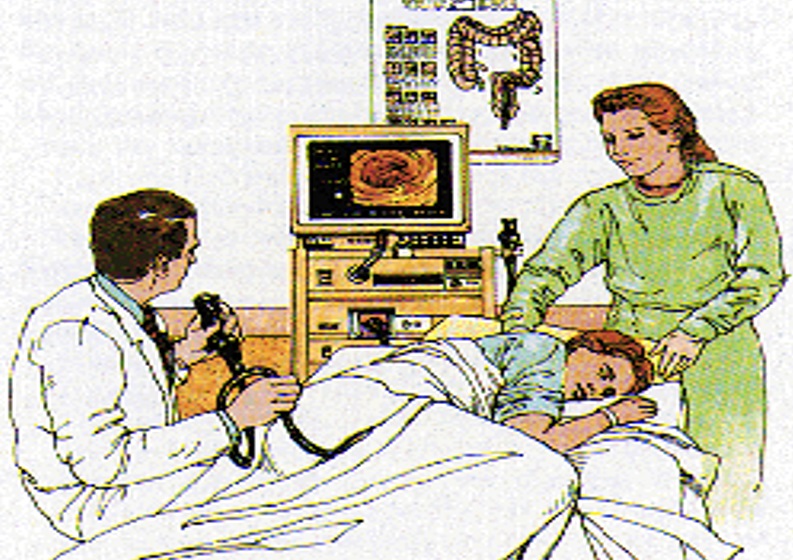Introduction
Colonoscopy is a procedure to examine a ptient’s large intestine and a part of the small ntestine using a scope. The colonoscope is a flexible tube with a camera at its tip. Colonoscopy alows a direct visualisation of the large intestine and a part of the small intestine through a scope which is inserted into the anus.

Why is a coloscopy being performed?
The purpose of performing a colonoscopy is to diagnose diseases related to the intestin. Coloscopy also can be use to remove polyps. To stop bleeding and for taking biopsy of the intestine and also biopsy of any growth in the intestine.
Who should have a colonoscopy?
Patients who need a colonoscopy are those who have history of altered bowel habit, per rectal bleeding or passing out mucus during defecation, chronic diarrhoea, chronic constipation, anaemis of unknown cause and patients with immediate family history of colon cancer.
What are the preparation before a colonoscopy?
A day prior to the colonoscopy, patients are given instructions to clean the colon, called a bowel prep. Patients must avoid eating vegetables and high protein diet. Patients are given a special cleansing solution to drink either Fleet or Fortran. They need to drink a lot of water or fruit juice. On the day of the procedure the patients must be fasting.
How is colonoscopy being performed?
Patients are being informed about the procedure and a consent is taken. Patient will lie on the left side and both the legs are flexed. They will be given sedatives prior to the procedure. During the procedure the breathing and pulse rate of the patients are monitored.

What are the possible complications of colonoscopy?
Colonoscopy is a safe procedure and complications are rare when performed by gastroenterologists who are experienced.
Complications that may occur are bowel perforation or tear through the colonic wall (low risk 0.082%) and if it occur patients may need surgery. Secondly bleeding which is usually minor and self limited or can be controlled through the coloscope. Othe complication include discomfort or pain due to distended colon by inflation of air during the colonoscopy. The discomfort or pain can be reduced by sucking out the air relieved by medications.
| Last Reviewed | : | 20 June 2016 |
| Writer/Translator | : | Dr. Fauziah bt. Jaya |
| Accreditor | : | Datuk Dr. Muhammad Radzi b. Abu Hassan |







